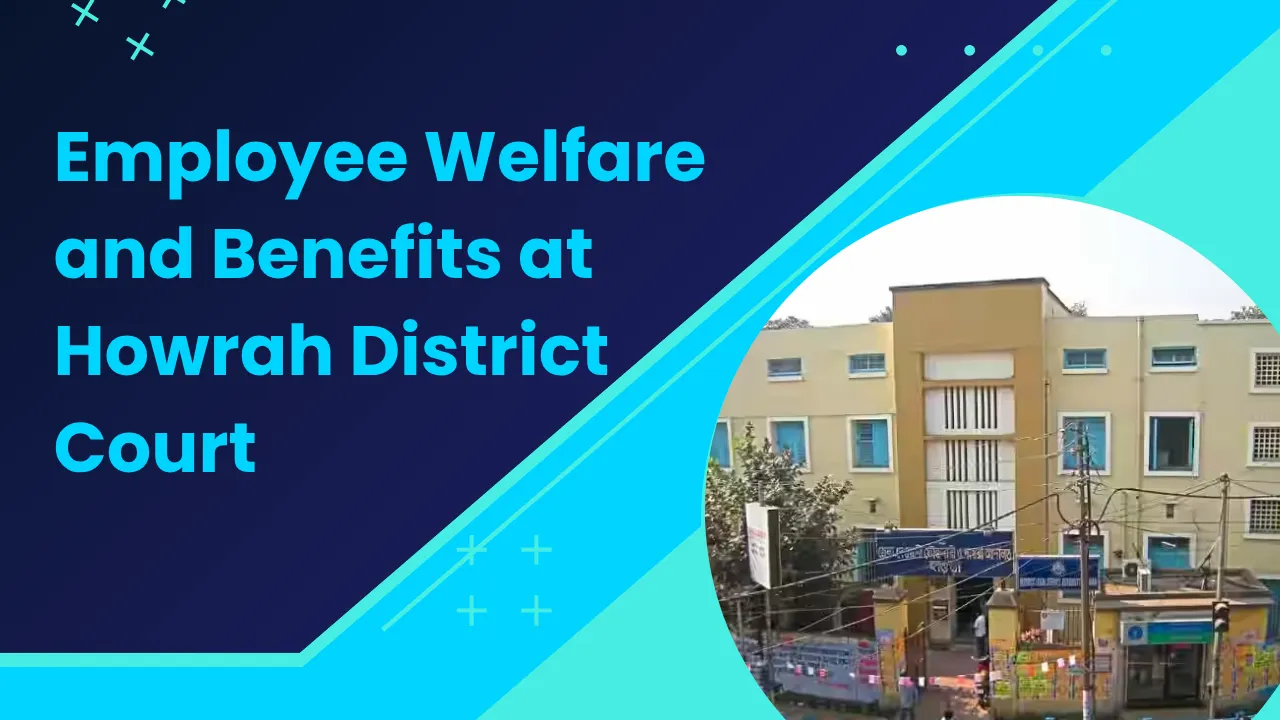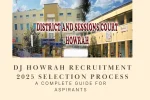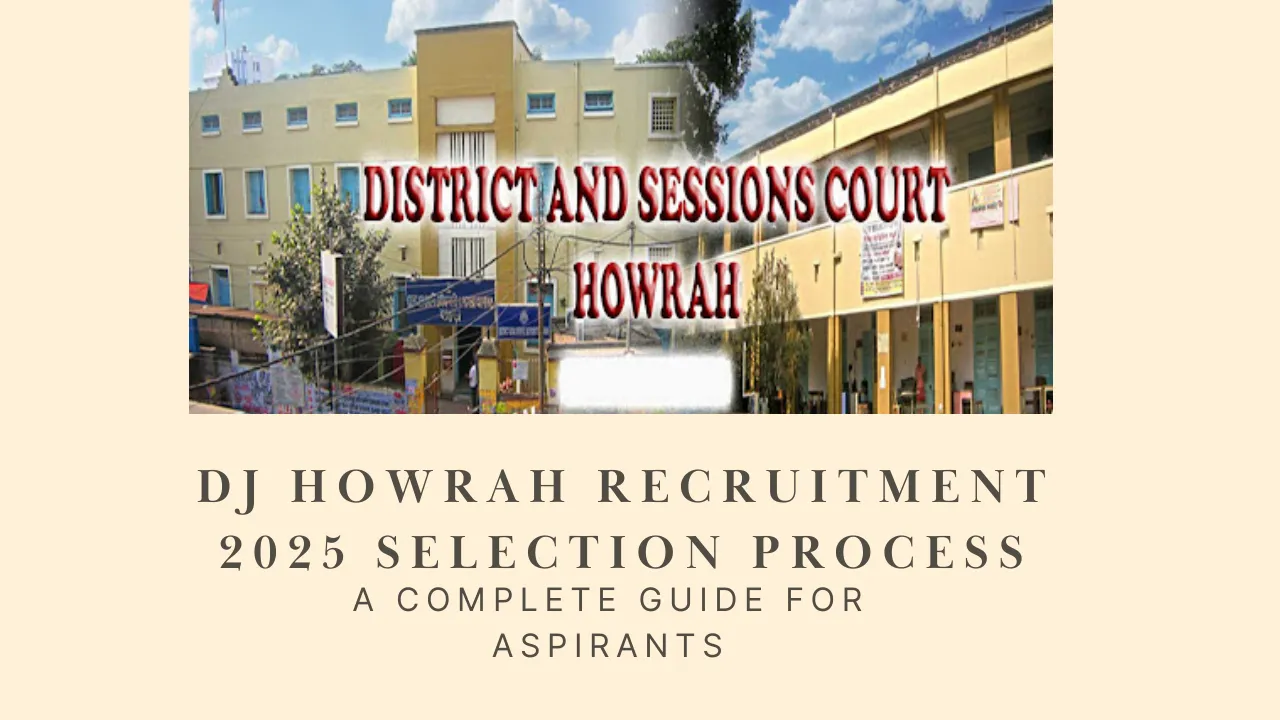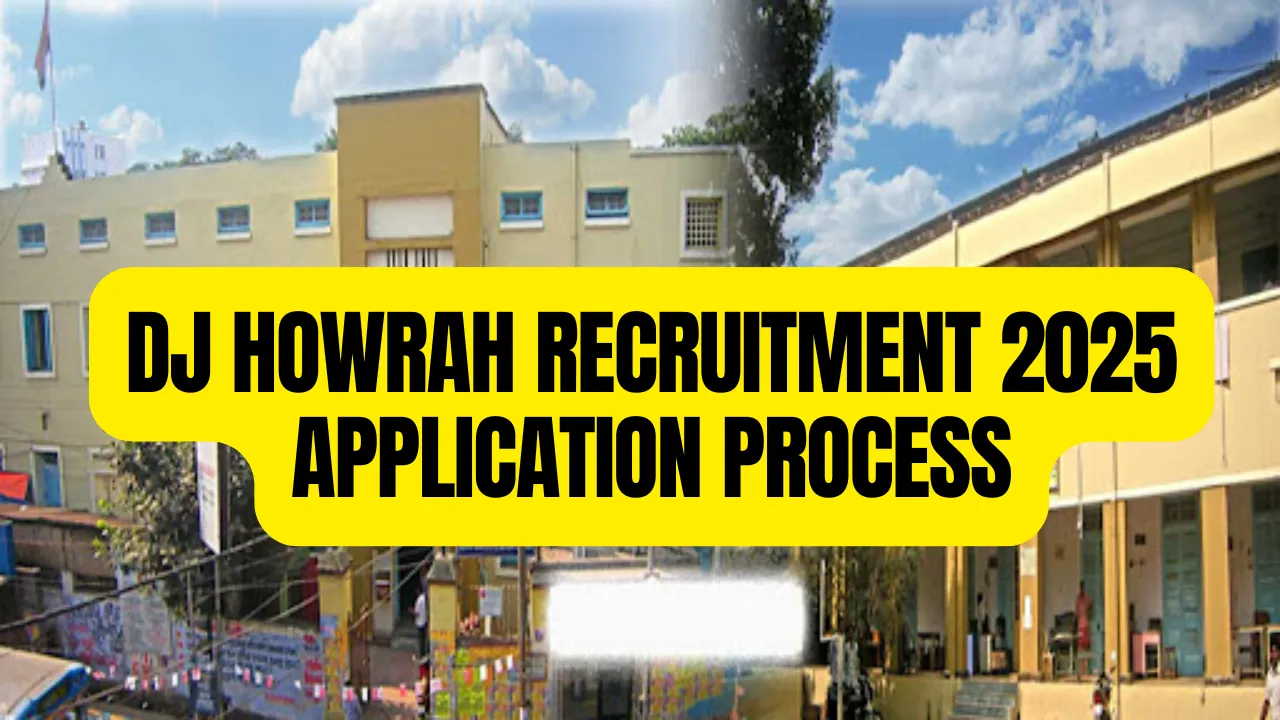Howrah District Court Employee Benefits: Working at Howrah District Court offers much more than a steady paycheck—it includes a suite of Howrah District Court Employee Benefits designed to uplift staff and their families. From comprehensive healthcare coverage to flexible leave, these benefits reflect a strong commitment to employee well-being and professional stability.
When it comes to Howrah District Court Employee Benefits, you’ll find advantages that go beyond monetary gains. Employees enjoy robust medical schemes, generous leave entitlements, housing provisions, and lifelong financial security—all outlined in West Bengal’s Service Rules and enhanced by judicial orders from the Calcutta High Court.
Howrah District Court Employee Benefits
The comprehensive nature of Howrah District Court Employee Benefits makes it one of the most structured support systems in the state’s public sector landscape. Unlike many workplaces, where benefits are fragmented or limited, the court’s policies are designed to cover every stage of an employee’s life—from onboarding to retirement. Whether it’s medical care under WBHS, the assurance of post-retirement pensions, or the ability to take leave for family responsibilities, these benefits serve as a strong incentive for long-term service and loyalty.
Howrah District Court Employee Benefits – At a Glance
| Benefit Category | Key Details |
| Medical Coverage (WBHS) | Cashless treatment up to ₹1.5 lakh, covers dependents with full claim rights |
| Leave Policies | Includes casual, earned, maternity/paternity, childcare, sabbaticals |
| Housing & Allowances | HRA up to 12% of pay; lottery-based government housing through Akanksha |
| Financial Security | CPF/GPF contributions, pension, gratuity, leave encashment |
| Additional Perks | Festival advance, group insurance, welfare committee aid, skill workshops |
Medical Facilities: West Bengal Health Scheme (WBHS)
Employees and their immediate families are covered under WBHS, which supports a wide range of medical needs—from minor outpatient visits to critical surgeries. Government and empaneled private hospitals offer cashless treatment up to ₹1.5 lakh, with reimbursements possible elsewhere if needed. This benefit greatly eases the burden of rising medical costs and supports family health with peace of mind.
Leave Policies: Embracing Work-Life Balance
Howrah District Court staff enjoy flexible leave policies to support life’s demands:
- Casual Leave (14 days/year): For shorter absences like urgent errands or minor illnesses.
- Earned Leave (30 days/year): Accumulates over time and can be encashed upon retirement.
- Half-Pay & Commuted Leave: Full pay during illness, debited through half-pay leave.
- Maternity (180 days) & Paternity (30 days) Leave: Supporting new parents.
- Child Care Leave (up to 730 days): Helps working mothers during early parenting years.
- Adoption Leave (135 days): For female employees adopting young children.
- Special Leave Types: Including study, quarantine, extraordinary, and hospital leave for unique circumstances.
These policies foster resilience, promoting staff welfare and job satisfaction.
Housing Allowances and Accommodation
Living in or near Howrah can be costly, but the court helps ease that burden. Employees receive House Rent Allowance (HRA)—typically at 12% of their basic pay, with a cap of around ₹12,000 per month. The state’s Akanksha Housing Scheme may also enable staff to join housing lotteries when available. For those housed through government provisions, HRA is waived to avoid duplication.
Financial Security: Provident Fund, Pension, Gratuity
Howrah District Court staff contribute to either the Contributory or General Provident Fund, ensuring post-retirement financial stability. The pension scheme kicks in after service completion, while gratuity offers a lump sum based on service length and last pay. Additionally, leave encashment during retirement provides a welcome financial boost.
Extra Perks and Welfare Schemes
Beyond essential benefits, staff enjoy several extras that boost morale and resilience:
- Group Insurance: Life and accidental coverage for employees.
- Festival Advance: Interest-free loans to alleviate festive expenditure.
- Medical Reimbursement: Beyond WBHS, extra aid is available for less common treatments.
- Welfare Committees: Organizing social events and emergency relief funds.
- Training Workshops: Ongoing skill development for administrative and legal staff.
These added benefits foster a supportive and engaged workplace culture.
Why These Benefits Matter
In today’s era of stress and rising living costs, Howrah District Court Employee Benefits offer more than comfort—they provide stability, security, and dignity. Healthcare coverage reduces financial risk, leave policies support diverse life needs, and housing and financial perks ensure long-term well-being.
These benefits also cultivate loyalty and motivation among employees, leading to a more dedicated and efficient judiciary. Judges and staff alike benefit from this secure and supportive environment, which ultimately enhances service quality for the public.
Final Thought
Working at Howrah District Court means joining a community where employee welfare is not an afterthought—it’s a priority. Whether you’re a court clerk, stenographer, or administrative staff, these benefits empower you to balance work, family, and health with confidence.
If you or someone you know is pursuing a role in judicial services, understanding these Howrah District Court Employee Benefits helps in making an informed career move—one that values stability, respect, and personal growth.
Call to Action
Interested in joining the Howrah judicial system? Explore current job openings, prepare your applications, and register for recruitment updates. And if you’re already serving, take full advantage of these welfare programs—update your health records, apply for leave as needed, and participate in training sessions to maximize your benefits!
FAQs – Howrah District Court Employee Benefits
1. Who qualifies for WBHS medical cover?
All court staff under WBSR and their dependents (spouse, children, parents) are eligible.
2. Can HRA be claimed if living in government housing?
No—HRA is not paid if employees occupy Akanksha scheme housing.
3. How much earned leave can I encash?
You can encash up to 300 days of accumulated leave, especially upon retirement or resignation.
4. What extra perks are available beyond basic benefits?
Festival advances, group insurance, welfare committee support, and training workshops are offered.
5. Is childcare leave available for adoptive parents?
Yes—female employees adopting a child under one year are eligible for 135 days of Child Adoption Leave.












